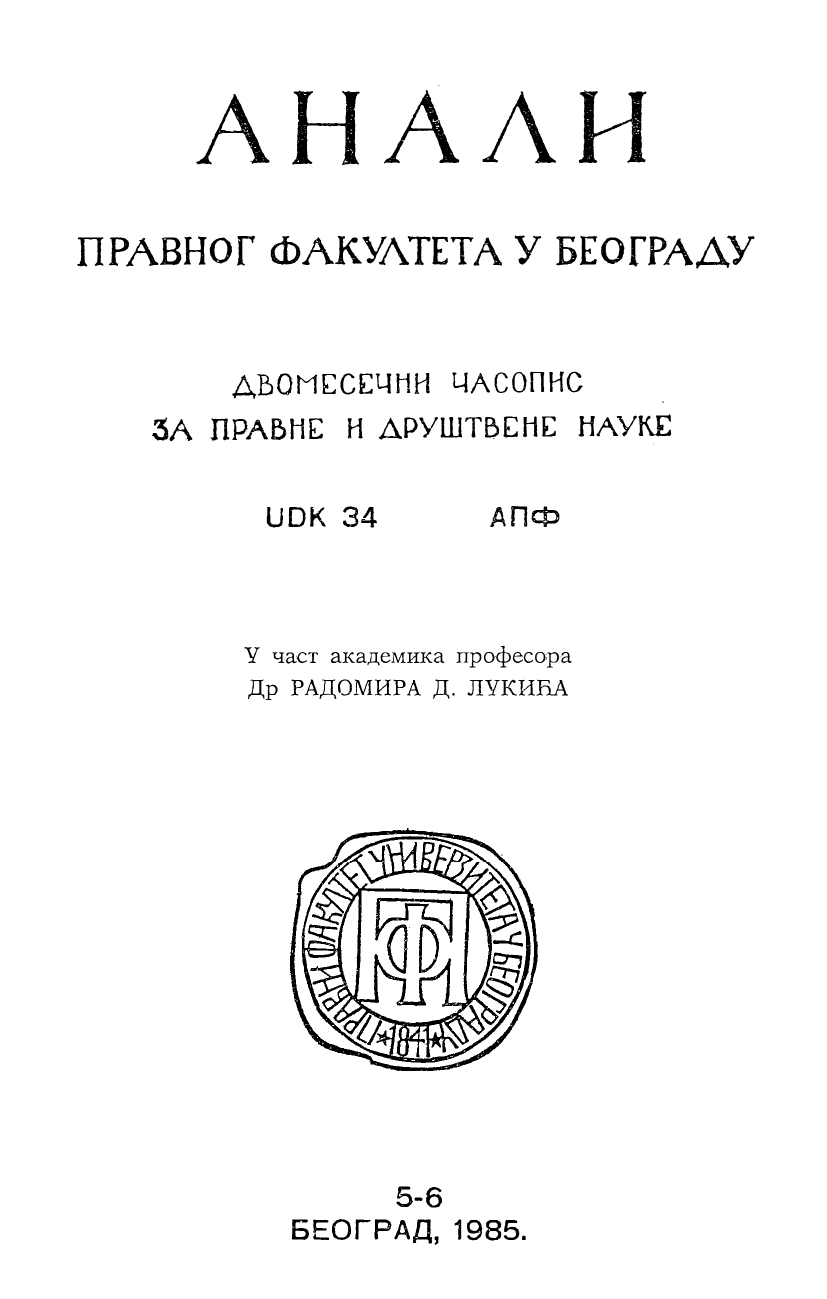СВЕТОЗАР МАРКОВИЋ О ПРАВУ
SVETOZAR MARKOVIĆ ON LAW
Author(s): Dimitrije ProdanovićSubject(s): Law, Constitution, Jurisprudence
Published by: Правни факултет Универзитета у Београду
Summary/Abstract: Svetozar Marković treated the problems of law while elaborating the problem of ownership, since he considered that just settling of that problem was needed for the realization of complete equality and freedom for every member of society, namely for the final goal he fought for by means of law too. Therefore he elaborates the law in his analyses predominantly as the right of ownership. He defines that right primarily al the power of man over the object which is appropriated in order to maintain biological existence, namely as the authority of some other kind. After that he required that this right be created only under the equal conditions for everybody. However, he considers law also as a rule of social behaviour, which is the case in the primeval community where there were generally accepted customs, but also in the form of law (statute) in the state where it is enacted only by a minor part of society. In both cases the reason for creating both the customs and the laws (statutes) amounts to the need for regulating the conflicts emanating out of the realization of individual strivings for appropriating, as well as out of conflict caused through satisfying of these strivings, where the inborn egoistic aspiration of man for unlimited freedom is also important. Since, however, both the customs and the law contain the elements of limitation of freedom, this dichotomy between law and freedom is possible to settle up only in a socialist society with social ownership over the means of production, and with acquiring of individual right of ownership exclusively by one’s own work. In such a way the final goal would be realized of Svetozar Marković, i.e. social reformation, namely the greatest equality and freedom for every member of society. One can say that Marković was mostly influenced, as far as his theoretical conceptions on the function and nature of law were concerned, by Duhring, J. S. Mill, Glinka and Tchemishevsky. These conceptions, namely, are based on some kind of anthropological materialism; since they see in law predominantly the follower of man, regardless of socio-economic and political order. To some degree Marković's views on law are influenced by Marx too, since he clearly remarked the class character of law. However, and in spite of that, his viewpoints on law, due to predominant influence of the above mentioned authors, could not have a significant place in Yugoslav legal theory. On the other hand, his conception of the nature and function of legal acts as instruments for the implementation of law, and more particularly in relation to the constitution and laws (statutes) in Serbia of his time, contains the elements which are to quite a degree close to the conceptions of contemporary Yugoslav legal theory, so that they amount to permanent value within the framework of his entire work.
Journal: Анали Правног факултета у Београду
- Issue Year: 33/1985
- Issue No: 5-6
- Page Range: 692-699
- Page Count: 8
- Language: Serbian

